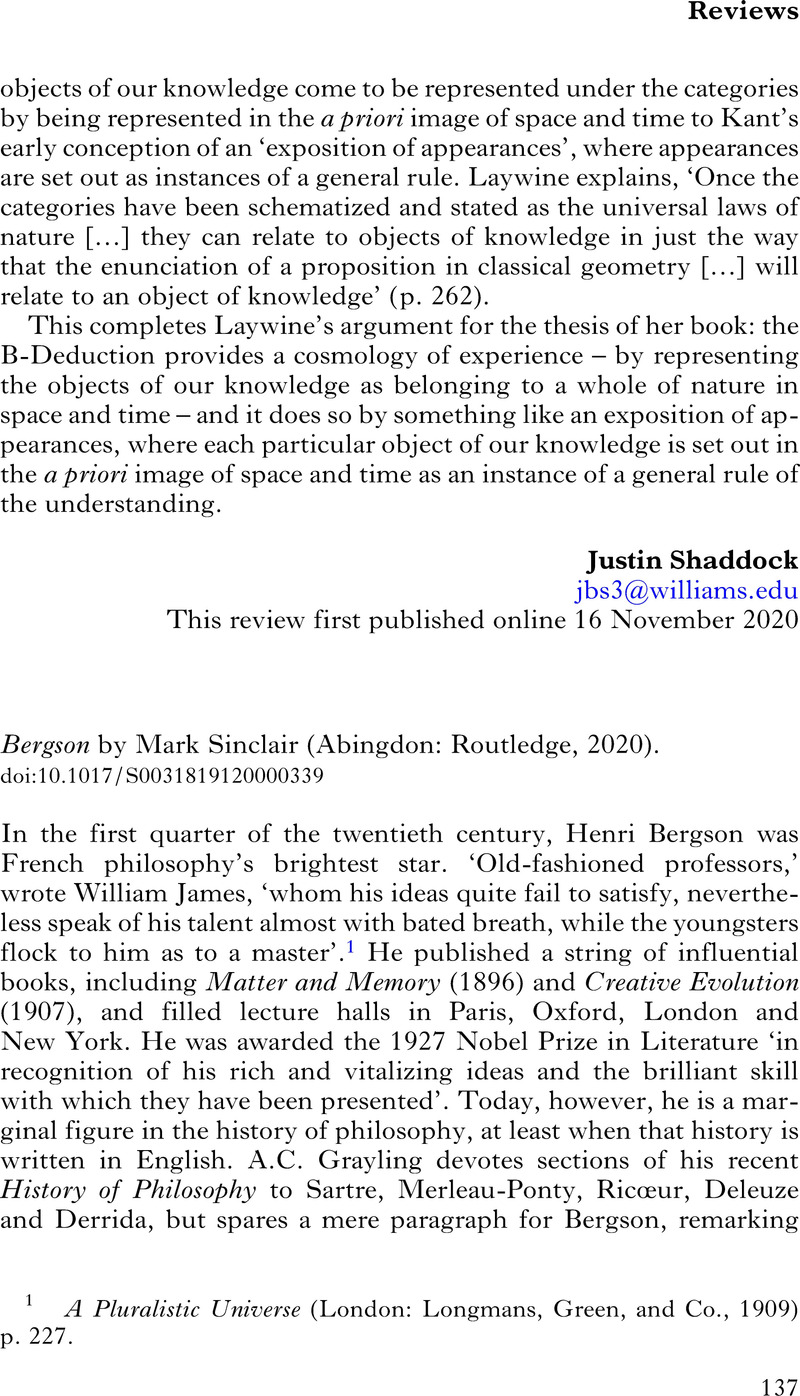Article contents
Bergson by Mark Sinclair (Abingdon: Routledge, 2020).
Published online by Cambridge University Press: 16 November 2020
Abstract

- Type
- Reviews
- Information
- Copyright
- Copyright © The Royal Institute of Philosophy, 2020
References
1 A Pluralistic Universe (London: Longmans, Green, and Co., 1909) p. 227.
2 The History of Philosophy (London: Viking, 2019) p. 508.
3 A New History of Western Philosophy, Volume IV: Philosophy in the Modern World (Oxford: Clarendon, 2007).
4 Pragmatism and French Voluntarism (Cambridge: Cambridge University Press, 1914) pp. 35-36, quoted by Sinclair (p. 3).
5 Rapport sur la philosophie en France au XIXème siècle (Paris: Hachette, 1867), p. 275, quoted by Sinclair (p. 9).
6 This is not to suggest that French spiritualism was simply an offshoot of German idealism. At one point in his essay on Ravaisson's life and work, Bergson compares him to Schelling: ‘One finds in the work of M. Ravaisson more than one page which could be compared, for the direction of thought as for the elegance of style, to the best writing of the German philosophy. Yet the influence of Schelling must not be exaggerated. There was perhaps less influence than there was natural affinity, community of inspiration and, if one can speak in this way, preestablished harmony between two minds that both floated high above and met on certain summits’ (La Pensée et le Mouvant (Paris: Presses Universitaires de France, 2013), pp. 262–63). Sinclair has a careful discussion of the relationship between Schelling and Ravaisson in his Being Inclined: Félix Ravaisson's Philosophy of Habit (Oxford: Oxford University Press, 2019), 116ff.
7 Moore, F.C.T., Bergson: Thinking Backwards (Cambridge: Cambridge University Press, 1996), xiCrossRefGoogle Scholar, quoted by Sinclair (p. 5).
8 Sheldrake is also cited in support of the claim that ‘the limits of gene-centric approaches have increasingly come to light since the underwhelming results of the Human Genome Project’ (p. 213).
9 Rose, S. and Sheldrake, R., ‘The Rebirth of Nature’, RSA Journal 142 (1994), p. 25Google Scholar. See also Maddox, J., ‘Resonance Through the Editions’, Nature 320 (1986), p. 648CrossRefGoogle Scholar.
- 1
- Cited by



